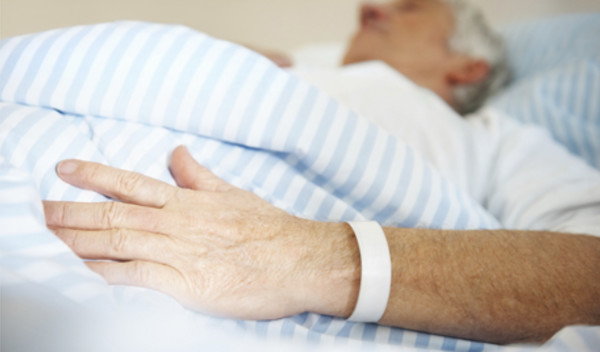

Millions of Britons are under-protected should serious illness strike, with only one in 10 people taking critical illness cover.
A fifth of the population admit their household would not be financially secure for any length of time in the event of unexpected income loss.
Meanwhile more than a third would be forced to raid their savings if they were unable to work, according to research by Scottish Widows.
Despite this, only a third (32 per cent) of people have life insurance, and just 9 per cent have taken out critical illness cover.
The study, which is based on YouGov polling, coincides with three national cancer awareness campaigns taking place in March, focusing on prostate cancer, ovarian cancer and brain tumour.
Scott Cadger, head of underwriting and claims strategy at Scottish Widows, said: “Critical illness insurance can provide a significant financial boost at a time of emotional stress and financial difficulty, and can really help families who are struggling to come to terms with the impact of cancer.
“No matter what our personal circumstances, it is vital for all of us to ensure we have an appropriate plan in place to protect our finances and wellbeing.
“At a time when welfare reform is resulting in significant changes to benefits, families need to do all they can to protect themselves in the event of the unexpected happening.”
Figures from Cancer Research UK reveal one in eight men will be diagnosed with prostate cancer during their lifetime, while around 20 women are diagnosed with Ovarian cancer every day.
Meanwhile, 10 people a day die of a brain tumour - the chief cause of cancer deaths in children and young people, according to Brain Tumour Research.
All three conditions commonly occur in people of working age, with the average age of diagnosis 57 for prostate cancer and 47 for ovarian cancer in 2015.
Yet according to MacMillan Cancer Research, 28 per cent of people with cancer of all age groups - an estimated 700,000 individuals - are vulnerable because they have no savings to fall back on.
For 83 per cent of cancer patients, lost income and increased expenditure brought about by the disease costs them an average of £570 a month, with thousands having to borrow money from elderly parents - or even move back in with them - as a result of their condition.
Scottish Widows paid out almost £4.5m in critical illness claims relating to prostate cancer, ovarian cancer and brain tumours in 2015, which collectively accounted for almost one in ten (9 per cent) of all cancer claims that year.
Almost two thirds (63 per cent) of all critical illness claims were a result of cancer.
David Hollingworth, associate director at London & Country Mortgages, said: “What this highlights is how much people are unprotected.
"Protection is a key thing, and taking out a mortgage remains one of the key trigger points for people to consider their protection needs.
“It is not an easy thing to get customers to look into the benefits and it is talking about uncomfortable things – but these things do happen. For mortgage advisers, what we have worked hard on is to ensure it is built into our processes.
“In the past when mortgage advisers got really busy on the mortgage front protection started to slip down their priority list. We have worked hard to ensure it is built into the journey and we think it is important that consumers understand what cover is available even if they choose not to take it out.”
The Scottish Widows research surveyed 5,000 people between January and February 2016.
simon.allin@ft.com



